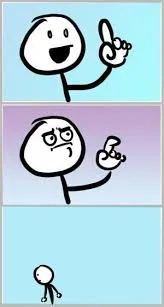D
Deleted member 16771
Too hard"I don't like that you value my opinion so highly. Go find your own opinions."
"It irritates me that you are willing to go participate in plans you don't want to do. I don't respect people who don't have a spine."
Something like this:
'Listen, dude, it's not good that you were willing to go along with those plans when you didn't want to. I find that weird, it creeped me out a bit, and I think you need to work on making yourself a priority.'

